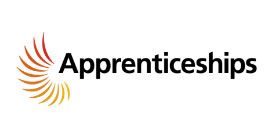Join Our Board
We are a successful further education college with a very strong reputation. Each year we deliver education and training to over 3,000 students and are recognised as the leading vocational training provider in the area. Our annual turnover is circa £11m and we employ over 350 staff. This makes the College one of the largest employers in this area and enables it to exert considerable influence in the local economy.
Our College is in excellent financial health, our success rates are very good and, importantly, our experience in vocational skills, extensive employer links and exceptional Real Work Environments enable Lancaster & Morecambe College to flourish as skills development takes centre stage.
As a public sector body, we are continually adapting to changing circumstances brought about by shifts in Government strategy and policy. Whatever challenges lie ahead, however, we can face our future with confidence.
The work of College Governors in driving up quality, achievement and participation is central to the success of the College. Your role as a Governor would be to help in setting the strategic direction of the College and monitoring its achievement. We are specifically looking to appoint people who can make a substantial contribution to the Corporation Board.
The Corporation needs Governors who can bring a variety of skills, experience and knowledge to the College in continuing our strive for excellence. Besides Governors, we also need people who are willing to act as specialist advisers to the Corporation by serving as a co-opted member of one of the Committees.
Governors at Lancaster & Morecambe College give a time commitment of one Corporation meeting a month and Governors may serve on one Committee (which demands another two or three meetings a year). Alongside attending College events, this equates to approximately one and a half days per month.
No formal qualification is necessary to be a Governor; just an enthusiasm to work in a voluntary capacity alongside other Corporation members, helping to ensure that the College continues to meet the needs of the community it serves.
Training, including induction and full support is available to all Governors, but in return, you will also gain enhanced personal development and skills, which could be of real benefit in your future career aspirations.
The role of College Governor is a voluntary position and is unpaid, although reasonable expenses incurred in attending meetings are reimbursed (including costs of childcare if required).
If you feel that you could contribute to the College's continuing success, we would like to hear from you. The College is deeply committed to equality of opportunity and welcomes applications from all sections of the community.
The Corporation
The powers of the Corporation are specified in the Further and Higher Education Act 1992, amended by the 2011 Act. In summary, the Corporation is empowered to:
- Provide further and higher education.
- Supply goods or services in connection with the provision of education.
- Conduct an educational college.
- Provide the necessary facilities to support its principal powers.
- Acquire and dispose of land and property, enter into employment and other contracts, borrow and invest money.
Role Description
DUTIES OF A GOVERNOR
Collectively, individual Governors contribute their professional, specialist and general management skills to the Corporation and its committees in a non-executive role. A Governor is required to be as flexible as possible in the conduct of their responsibilities and duties, ensuring that the balance of oversight of the College and its business is seen as a positive contribution that does not interfere with the day-to-day management of the College. The primary duties of a Governor are to:
-
Determine and periodically review the educational character and mission of the College and to oversee its activities and to publish arrangements for obtaining the views of staff and students on these matters.
-
Make effective and efficient use of resources; safeguard the solvency of the College and the Corporation and to safeguard its assets.
-
Determine and monitor the College’s strategic plan, and approve the quality strategy and improvement plans, financial forecasts, budgets and capital programmes, all of which will provide the essential framework for the internal management of the College.
-
Approve the annual estimates of income and expenditure.
-
Approve the policy and charging of tuition and other fees payable to the College, including remission fee policies (subject to any terms and conditions attached to grants, loans or other payments paid or made by an agency).
-
Be responsible for the appointment, grading, suspension, dismissal and determination of the pay and conditions of the service of the holders of senior posts (including where the Governance Adviser & Clerk is, or is to be appointed as, a member of staff, the Governance Adviser & Clerk’s appointment, grading, suspensions, dismissal and determination of pay in the capacity as a member of staff).
-
Set a framework for the pay and conditions of service of all other staff.
-
Comply with the Instrument and Articles of Government, the Corporation’s Standing Orders, the Financial Memorandum and Code of Conduct and any other related Governance Policies and Procedures.
-
Contribute to the business of the Corporation in an effective, efficient, open and transparent manner.
-
Serve on appropriate Corporation committees, namely, Audit, Remuneration or Search or any other committee or working party as required by the Corporation.
-
Set measurable targets for the College.
- To act in the best interests of the College at all times.
Individual Responsibilities of a Governor
-
Act in line with the seven principles of public life; selflessness, integrity, objectivity, accountability, openness, honesty and leadership.
-
Identify your own skills, ideas, experience and knowledge and work out how to transfer them to an educational setting.
-
Recognise your own ignorance about the changes in education and develop new skills and knowledge to keep up-to-date.
-
Take an active interest in the work of the College.
-
Respect the authority, roles and structures of the governing body and the College, and the rules on confidentiality.
-
Ensure you have sufficient information and advice to make the best decisions possible.
-
Balance and make use of different viewpoints when making sense of a situation.
-
Where there is insufficient information, or it is conflicting or unclear, ensure that you take effective action to deal with it.
-
Work effectively with other Governors to take decisions through analysing risks, assessing options and being aware of the consequences.
-
Accept corporate responsibility for decisions taken by the Corporation, even when you do not agree with them.
You will also need to understand:
-
The role of the Chair in leading the work of the Governing Body.
-
The role of the Governance Adviser & Clerk in supporting the work of the Governing Body.
-
The role of the Principal in managing the day-to-day operations of the College.
-
The rules of procedure for meetings.
-
The role of committees and what business is delegated to them.
-
The Code of Conduct for Governors.
All governors are subject to enhanced CRB (Criminal Records Bureau) disclosure.
Time Commitment
Approximately 1-2 days per month average, over the year
Person Specification
Strategic Leadership
- Ability to develop a broad based view of issues and events and their longterm impact.
- Ability to set direction, including culture, values and ethos.
- Ability to demonstrate a knowledge and understanding of facts and rationalise appropriately to have effective decision making. Be able to think laterally and arrive at a pragmatic solution.
- Ability to work collaboratively with stakeholders and partners, potentially, holding other roles or links with other organisations, which would bring a wider perspective of local developments and/or national economic and social change.
- Ability to effectively manage and mitigate risk.
- Able to demonstrate behaviour and skills that motivate others to achieve and inspire confidence in others to achieve.
- Recognise the value of innovation and creative thinking to organisational development and success.
Accountability
- Be committed to and demonstrate a real interest in and enthusiasm for the further education sector and educational improvement.
- Be committed to equality, diversity and inclusion.
- Ability to provide rigorous analysis of data, through an enquiring, analytical approach and understanding of meaningful questioning.
- Have a basic understanding of financial frameworks, management, monitoring and accountability.
- Understand staffing and performance management.
- Provide appropriate challenge, not accepting information at face value and always driving improvement.
People
- A commitment to act as an advocate for the College and to act in the best interests of the College at all times.
- Ability to express ideas in a clear manner and to listen actively to other views.
- Be confident, of an independent mind, able to lead and contribute positively to discussion and debate, whilst being constructive, and to express an opinion and play an active role on the Board.
Structures
- Be aware of and respect the relevant roles and responsibilities.
- Have recent experience of contributing to meetings.
- Contribute positively and effectively to Board and Committee discussions, ensuring focus remains on the key issues.
Compliance
- Adhere to statutory and contractual requirements.
- Be committed to devoting the required time and energy to the role, be prepared meet the minimum meetings attendance requirements, plus one College event, one assessment board and one learning walk each year, some of which may be during the day. An annual schedule of meetings is agreed each summer term for the forthcoming academic year.
Evaluation
- Understand the value of critical friendship, which enables both challenge and support and be self-reflective in pursuing learning and development opportunities to improve your own and the whole Board’s effectiveness.
- Able to establish an effective course of action to achieve goals that can be monitored by realistic performance targets.
For further information or the opportunity to have an informal discussion, please contact Oona Cushen, Governance Adviser & Clerk 01524 521238. Email o.cushen@lmc.ac.uk













